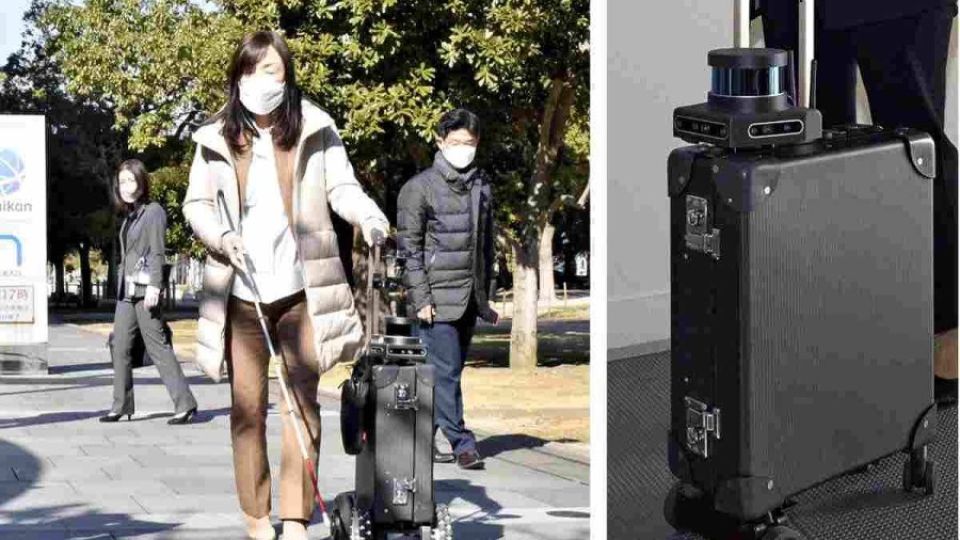March 8, 2023
TOKYO – A blind researcher is developing a suitcase that uses artificial intelligence to help visually impaired people navigate to destinations safely.
“With the power of science and technology, we can reduce the gap between people with disabilities and those without,” said researcher Chieko Asakawa, who is chief executive director of the National Museum of Emerging Science and Innovation.
Asakawa, 64, lost her eyesight at 14 as a result of an accident in elementary school. After graduating from university, she joined IBM Japan Ltd.’s research and development division in Tokyo in 1985. According to Asakawa, she started using computers to help overcome challenges in finding information herself as a visually impaired person.
At IBM Research – Tokyo, she developed a Japanese digital Braille system and voice-enabled internet browser.
In 2009, she was appointed IBM Fellow, the highest position for IBM engineers, and in 2014, she went to an American university as an IBM Distinguished Service Professor, which involved more opportunities for international travel.
Asakawa struck upon the idea of a suitcase-cum-navigating device around 2017 when luggage she was pushing at an airport hit a wall. She realized suitcases could be used as a tool for detecting obstacles.
Working with companies, universities and other organizations, Asakawa is developing a state-of-the-art device that can help users get to their destination and avoid obstacles.
The latest prototype operates at close to the average walking speed of an adult and is equipped with sensors that enable it to detect obstacles and people.
The system also provides voice guidance about the location and surroundings.
One of the next steps will be getting the technology to handle crowded situations and the ultimate goal is to make it possible for blind people using the AI suitcase to move around just as safely and smoothly as fully sighted people.
“I hope to use the AI suitcase to travel by myself so I can visit friends around the world,” Asakawa said.

